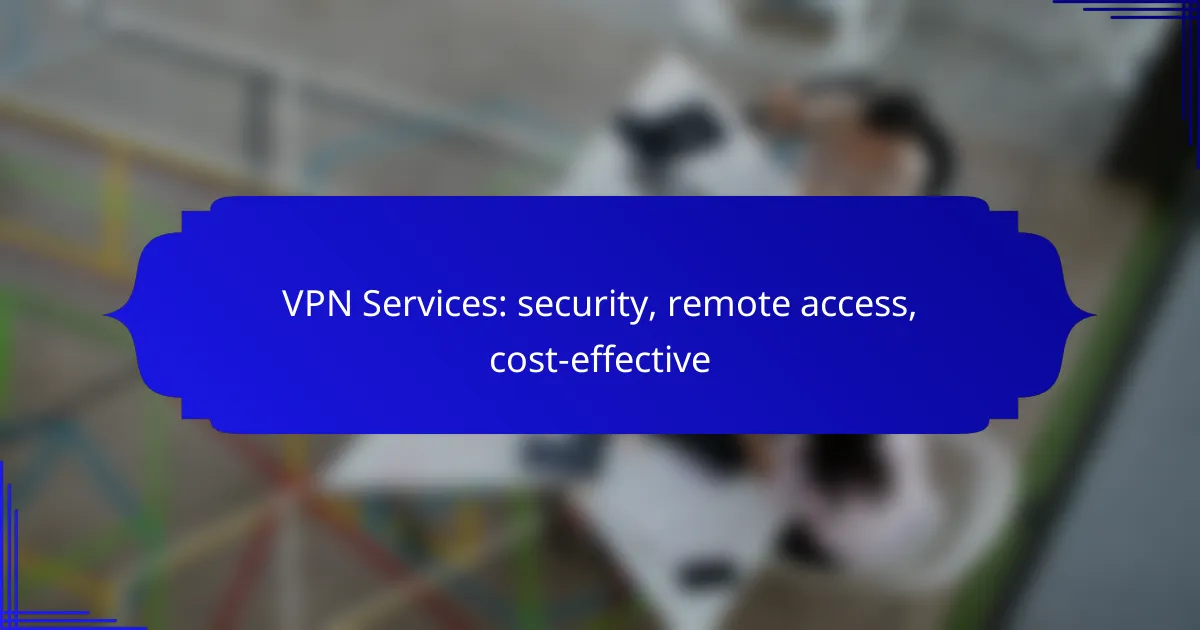VPN services are essential for ensuring security and privacy while browsing the internet, especially in New Zealand, where options like NordVPN and ExpressVPN offer robust encryption and user-friendly interfaces. They also facilitate secure remote access, enabling users to connect to their organization’s network safely from any location. Additionally, there are cost-effective VPN solutions available that provide a balance of features and affordability, making secure internet access accessible to everyone.
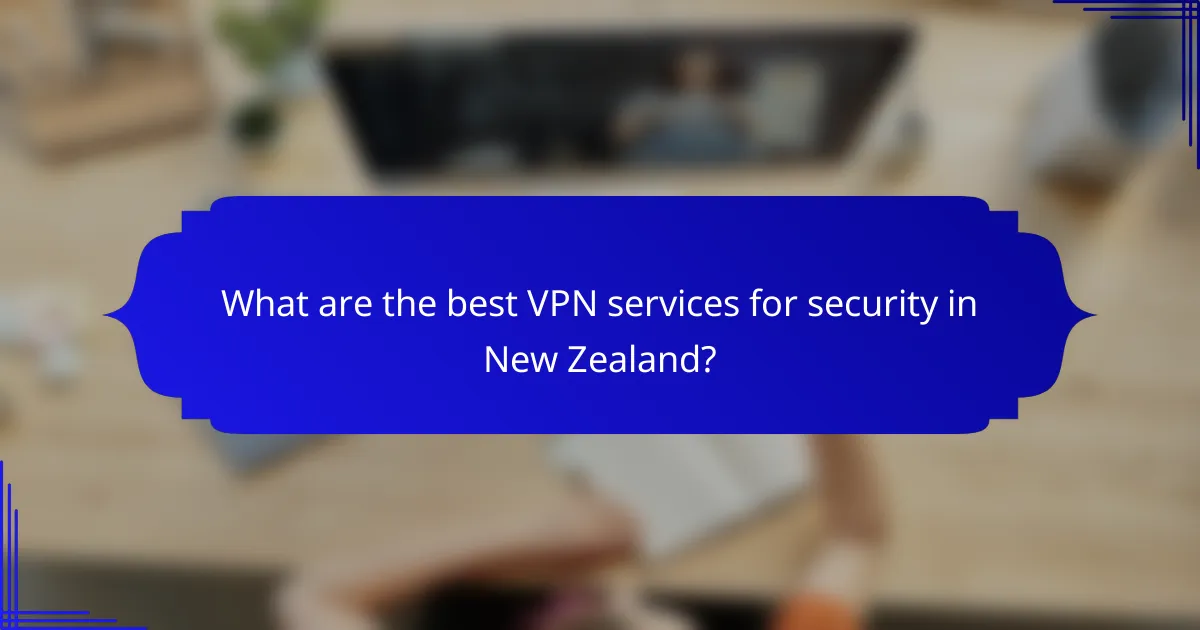
What are the best VPN services for security in New Zealand?
The best VPN services for security in New Zealand prioritize strong encryption, privacy policies, and reliable performance. Services like NordVPN, ExpressVPN, and Surfshark stand out for their robust security features and user-friendly interfaces.
NordVPN for advanced encryption
NordVPN is renowned for its advanced encryption standards, utilizing AES-256-GCM encryption to secure user data. This level of encryption is considered military-grade, making it extremely difficult for unauthorized parties to access your information.
In addition to encryption, NordVPN offers features like Double VPN, which routes your traffic through two servers for an extra layer of security. This is particularly beneficial for users in New Zealand who want to enhance their online privacy.
ExpressVPN for secure remote access
ExpressVPN excels in providing secure remote access, making it ideal for users who need to connect to their home or work networks from anywhere. It employs strong encryption protocols and has a strict no-logs policy, ensuring that your online activities remain private.
With servers located in numerous countries, including options close to New Zealand, ExpressVPN allows for fast and reliable connections. This is crucial for activities like video conferencing or accessing sensitive information remotely.
Surfshark for budget-friendly security
Surfshark offers a cost-effective solution without compromising on security features. It provides strong encryption and a no-logs policy, making it a great choice for users in New Zealand looking for affordable options.
Additionally, Surfshark allows unlimited simultaneous connections, which is beneficial for families or individuals with multiple devices. This flexibility, combined with its competitive pricing, makes Surfshark an appealing choice for budget-conscious users seeking reliable VPN security.
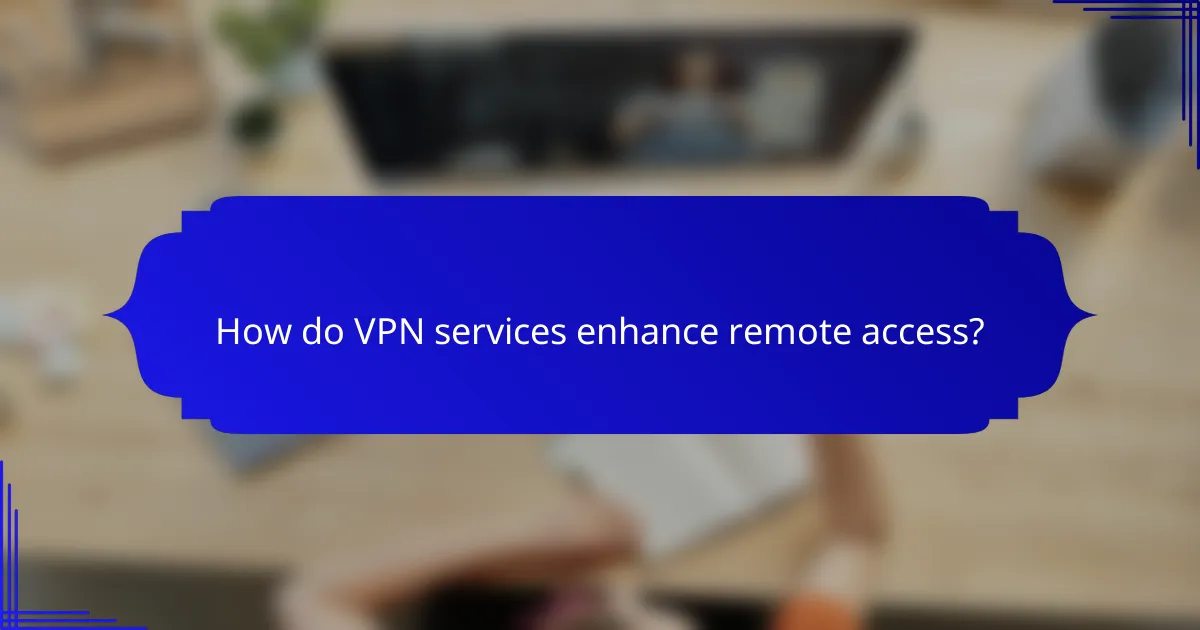
How do VPN services enhance remote access?
VPN services significantly enhance remote access by providing secure and private connections over the internet. They encrypt data, allowing remote workers to connect to their organization’s network safely, regardless of their physical location.
Secure connections for remote workers
VPNs create secure connections by encrypting the data transmitted between the user’s device and the VPN server. This encryption protects sensitive information from potential cyber threats, making it essential for remote workers who access company resources from various locations.
When selecting a VPN for remote work, consider factors such as encryption standards, server locations, and connection speeds. Look for VPNs that use strong protocols like OpenVPN or WireGuard to ensure robust security.
Access to geo-restricted content
VPN services allow users to bypass geographical restrictions by masking their IP addresses and making it appear as if they are accessing the internet from a different location. This is particularly useful for remote workers who need to access region-specific content or services.
To effectively use a VPN for accessing geo-restricted content, choose a provider with servers in the desired locations. Additionally, be aware of any legal implications or terms of service that may apply when using a VPN to access restricted content.
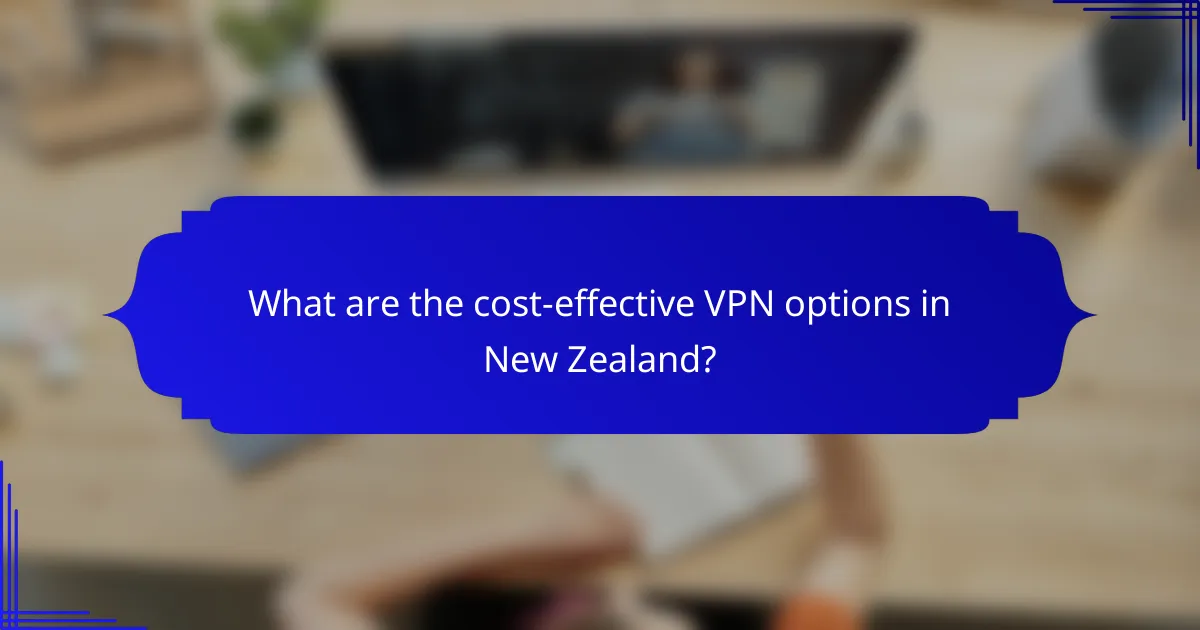
What are the cost-effective VPN options in New Zealand?
Cost-effective VPN options in New Zealand provide secure remote access at affordable prices. Users can choose from various services that balance features, performance, and subscription costs.
Private Internet Access for affordable plans
Private Internet Access (PIA) is known for its budget-friendly pricing, often offering plans that start at low monthly rates. This service provides a robust set of features, including strong encryption and a no-logs policy, making it a reliable choice for users seeking value.
When considering PIA, look for promotional offers that can further reduce costs. Annual subscriptions typically yield the best savings, often dropping the monthly rate significantly compared to monthly plans.
CyberGhost for value-packed subscriptions
CyberGhost stands out for its comprehensive features and competitive pricing, making it a great option for users in New Zealand. The service includes a user-friendly interface, dedicated streaming servers, and a strong privacy policy.
CyberGhost frequently runs promotions, allowing users to secure long-term subscriptions at discounted rates. Be sure to check for multi-year plans, which can offer substantial savings compared to shorter commitments.
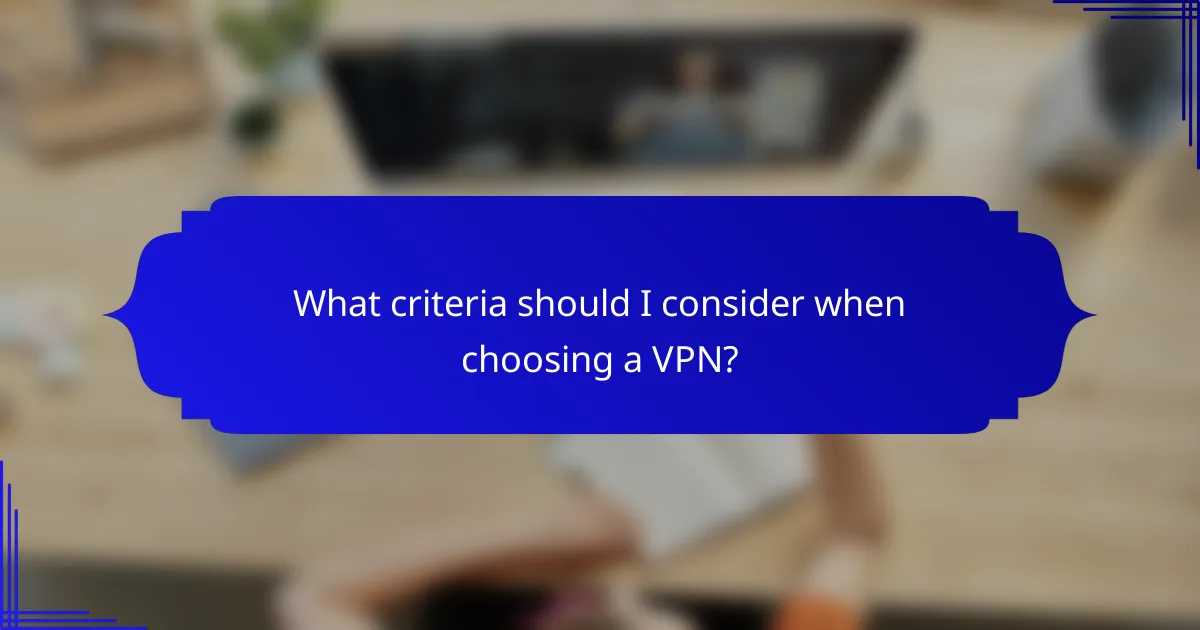
What criteria should I consider when choosing a VPN?
When selecting a VPN, prioritize privacy policies, data logging practices, speed, and server locations. These factors significantly impact your online security, browsing experience, and overall value.
Privacy policies and data logging
Understanding a VPN’s privacy policy is crucial. Look for services that have a strict no-logs policy, meaning they do not store any information about your online activities. This ensures that even if requested by authorities, there is no data to hand over.
Additionally, check for third-party audits or certifications that validate the VPN’s claims. Transparency in how they handle user data can provide peace of mind and enhance trust in the service.
Speed and server locations
Speed is a vital consideration when choosing a VPN, as it affects your streaming, browsing, and downloading experiences. Look for VPNs that offer high-speed connections and minimal latency, ideally with servers located close to your geographical area.
Server locations also play a significant role in performance and accessibility. A VPN with a wide range of server locations can help you bypass geo-restrictions and improve connection speeds. Aim for providers that offer servers in multiple countries to maximize your options.
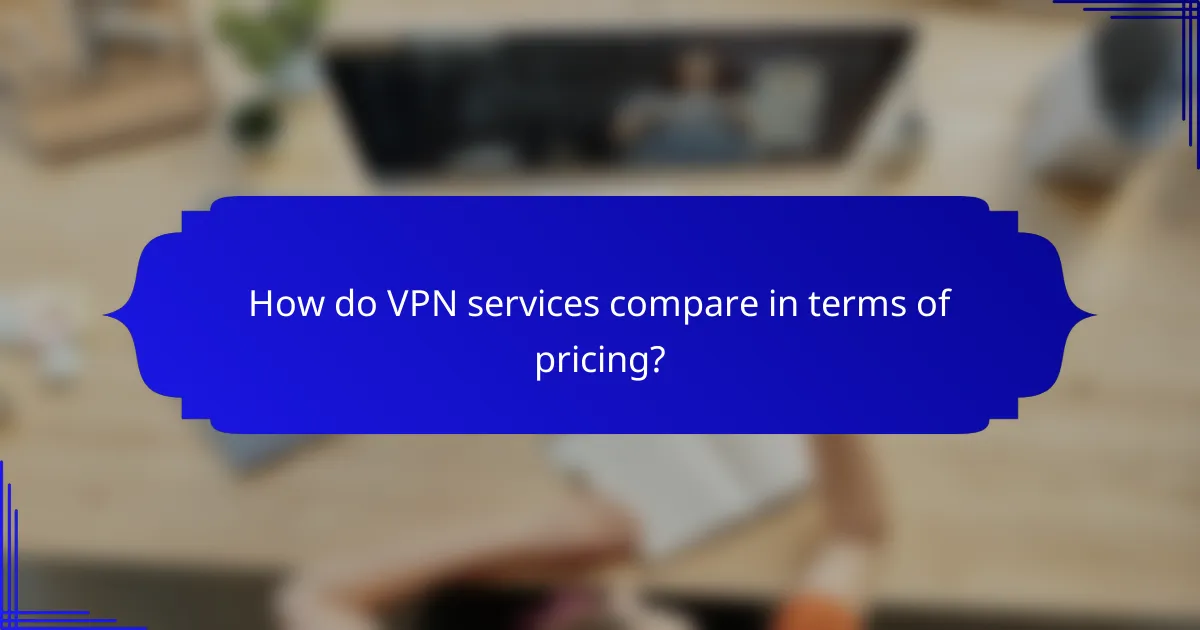
How do VPN services compare in terms of pricing?
VPN services vary widely in pricing, influenced by features, subscription length, and provider reputation. Users can expect to pay anywhere from a few dollars to over ten dollars per month, depending on the plan and additional services offered.
Monthly vs annual subscription costs
Monthly subscriptions typically cost more per month compared to annual plans, which often provide significant savings. For instance, while a monthly plan might range from $10 to $15, an annual plan could reduce the monthly cost to around $5 to $8 when billed upfront.
Choosing an annual subscription can be a cost-effective option for long-term users, but it requires a larger initial payment. Users should evaluate their needs and consider whether they will use the VPN consistently before committing to a longer-term plan.
Free VPNs vs paid options
Free VPNs can be tempting but often come with limitations such as data caps, slower speeds, and fewer security features. While they may be suitable for occasional use, they may not provide the same level of privacy and protection as paid services.
Paid VPN options generally offer better performance, stronger encryption, and access to a wider range of servers. Users should weigh the trade-offs between cost and quality, as investing in a reliable VPN can enhance online security and access to content without the drawbacks associated with free services.
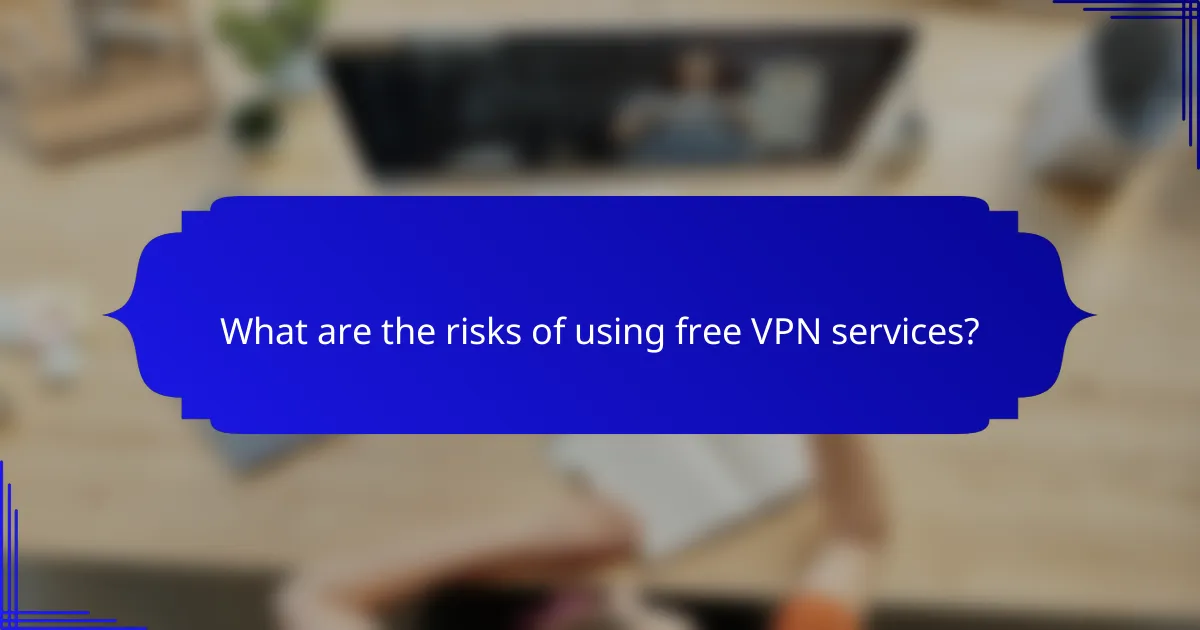
What are the risks of using free VPN services?
Using free VPN services can expose users to significant risks, including compromised data security and unreliable performance. Many free services monetize through data collection, which can lead to privacy violations and potential misuse of personal information.
Data privacy concerns
Free VPN providers often lack the resources to implement robust security measures, making user data vulnerable to breaches. Some may track online activities and sell this information to advertisers, undermining the very purpose of using a VPN for privacy.
Additionally, free VPNs may not comply with data protection regulations, such as the General Data Protection Regulation (GDPR) in Europe. This can leave users unprotected and unaware of how their data is being handled.
Limited server access
Free VPN services typically offer a limited number of servers, which can lead to overcrowding and slower connection speeds. Users may experience frequent disconnections and unreliable access to content.
Moreover, many free VPNs restrict access to certain regions, preventing users from bypassing geo-blocks effectively. This limitation can hinder the ability to stream content or access websites that are otherwise available in specific countries.
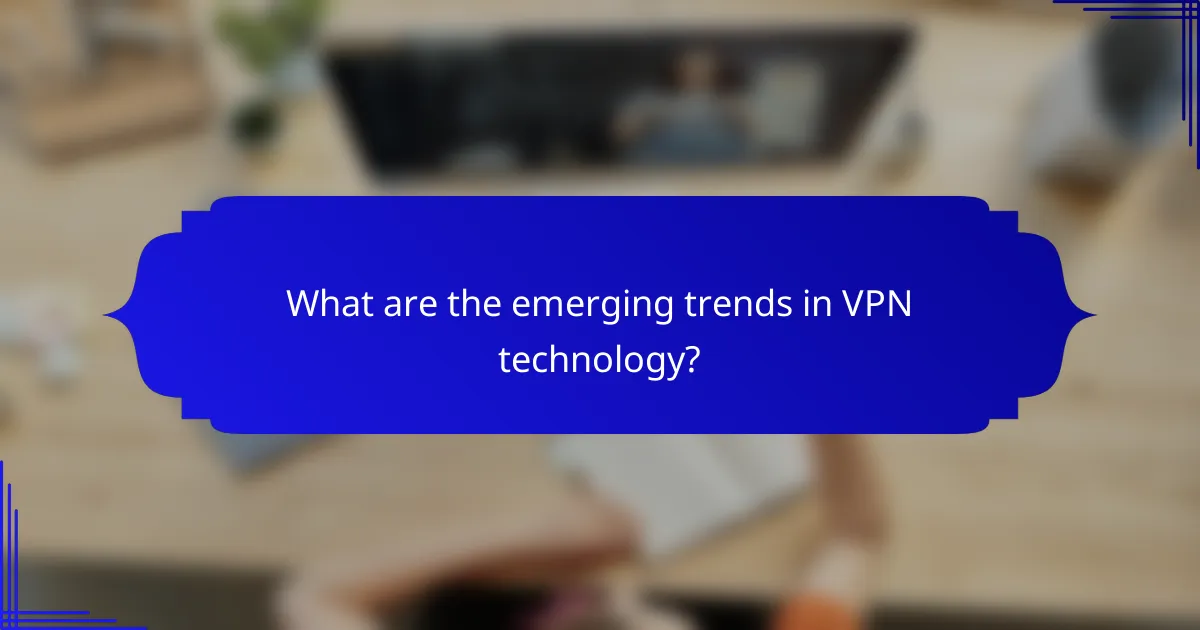
What are the emerging trends in VPN technology?
Emerging trends in VPN technology focus on enhancing security, improving user privacy, and integrating with smart devices. These developments aim to provide users with more reliable and efficient ways to protect their online activities and access remote networks.
Integration with smart devices
VPN services are increasingly being integrated with smart devices, allowing users to secure their home networks effortlessly. This integration enables users to protect multiple devices, such as smart TVs, IoT devices, and smartphones, under a single VPN subscription.
For example, some VPN providers now offer router-level installations, which protect all connected devices without needing individual installations. This approach simplifies management and enhances security across the entire network.
Increased focus on user privacy
As concerns about online privacy grow, VPN services are prioritizing user privacy features. This includes adopting no-logs policies, which ensure that user activity is not recorded or stored, and implementing strong encryption protocols to safeguard data.
Additionally, many VPNs are now offering features like split tunneling, allowing users to choose which traffic goes through the VPN and which does not. This flexibility can help maintain speed while still protecting sensitive data.
